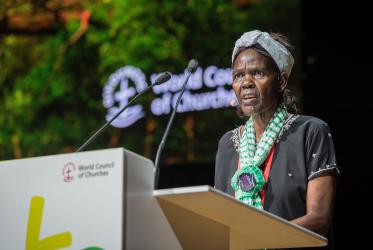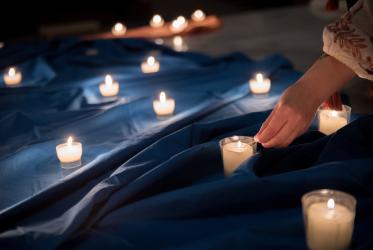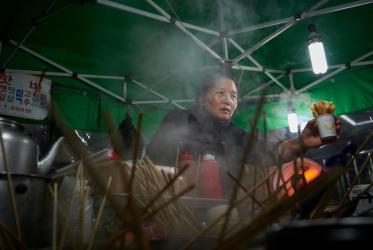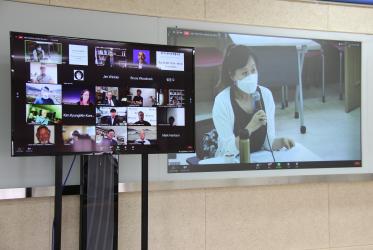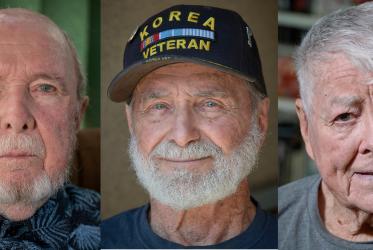Displaying 1 - 20 of 112
Peace Pilgrim Agnes Abuom dies at 73
01 June 2023
United Church of Canada launches Korea Peace Appeal
27 January 2022
Global communicator Mark Beach has died
24 September 2020
New student body at Bossey Ecumenical Institute “a source of joy”
14 September 2020



